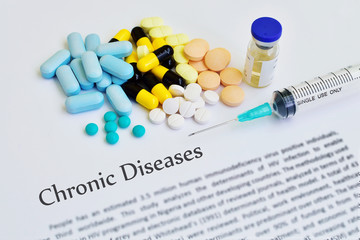This article was originally published by Connor O’Keeffe at The Mises Institute.
Two weeks ago, Robert F. Kennedy Jr. suspended his campaign for president. In his nearly hour-long speech explaining the decision, Kennedy highlighted what he sees as the three biggest issues facing the United States. The first two—the threat to free speech and the danger of the war in Ukraine—are familiar to anyone following the daily political fights happening online and in the traditional media.
But when Kennedy got to his third concern, it was striking how absent any discussion of it has been from our hyper-active national discourse. The issue was the scale of chronic disease affecting the American population and, especially, American children. Kennedy explicitly called this “the most important issue” and, as he laid out the scale of the problem, it’s easy to see why he feels that way.
As Kennedy said in the speech, two-thirds—or around 222 million Americans—suffer from chronic health issues. In the 1970s, the rate was lower than one percent. On top of that, nearly three out of every four Americans are now overweight or obese, and the childhood obesity rate stands at 50%.
There has been an explosion in diabetes in both kids and adults, as well as neurological illnesses and disorders like Alzheimer’s and autism. Kennedy also highlighted the sharp increase we’re seeing in food allergies, ADHD, and cancer, among others. His point is that, at the same time Americans are paying more for healthcare than the populations of nearly every other country, we are also quickly becoming the sickest.
What’s astonishing about all of this is that almost nobody denies the health emergency Kennedy lays out. Some argue that he is exaggerating a few of his numbers slightly or is misleading people with some rates of increase that are inflated by changes in how chronic diseases are defined and screened—something Kennedy and those he cites claim to have corrected for. But most of Kennedy’s critics in the media simply ignore what he says about this topic.
So, if the scale of the problem is this extreme and its existence is not controversial, why is this not the central issue in every national election? Simply put, because the chronic disease epidemic is making the political class absurdly rich.
In many ways, the problem has its roots in the Progressive Era at the end of the 1800s. At the time, there were several competing approaches to treating sick and ailing patients, each with its own network of doctors and professional associations. One such group was what their rivals called allopathic physicians. Their approach was to treat patients with painkillers and other drugs aimed specifically at reducing patient suffering.
Of course, for certain ailments, that is a perfectly reasonable approach. And, as one of many available in the early healthcare market, it provided many Americans who required such an approach the care they needed. But in the early 1900s, the allopathic doctors’ professional group—the American Medical Association (AMA)—decided to get with the times and lobby the government for special privileges.
As Patrick Newman explained in a lecture based on a chapter from his upcoming book, the AMA maneuvered its way into setting the official accreditation standards for the nation’s medical schools. With that newfound power, the association was able to both greatly restrict the supply of doctors—by forcing half of the country’s medical schools to close—and to certify their allopathic approach as the preeminent, legitimate, government-recognized form of medical care.
And the AMA was not alone. In most industries, powerful corporations and professional associations realized they could make a lot more money if they lobbied the government for monopoly privileges, lucrative subsidies, and cartel-preserving supply quotas. Similar efforts in the food industry resulted in the Food and Drug Administration (FDA) and many so-called nutrition programs at universities with deep ties to the biggest food companies.
On the agricultural side, farming and meatpacking groups successfully lobbied for the creation of what would become the recurring five-year farm bill. This law contains a multitude of handouts and privileges for agricultural giants, such as supply restrictions that artificially raise the prices of some kinds of produce and subsidies that over-saturate the market with other crops and products.
Finally, drug manufacturers were able to get the government to criminalize competition in the pharmaceutical industry and to protect companies from liability for the side effects of many drugs. The government even mandates the purchase of some drugs with its immunization schedule—much of which is required to attend school.
Together, all these companies and interest groups use their government privileges to fill their pockets.
Big agricultural companies flood the market with highly subsidized crops which have alternative uses, like corn syrup and seed oils, that crowd out healthier options that consumers actually prefer. Food companies can then use these artificially cheap ingredients to produce highly addictive ultra-processed foods that their friends in the government and university nutrition programs then say are part of a healthy diet.
Americans, who are taught from a young age to trust the government and university-trained, state-licensed medical professionals, are easily hooked on these ultra-processed foods. That’s great for the food companies but terrible for our bodies. Many of the chronic diseases plaguing Americans can be drawn back to our consumption (or our parents’ consumption) of these addicting food-like substances.
But it doesn’t stop there. The flood of chronic illnesses caused by ultra-processed food is lucrative for the medical industry, whose allopathic approach ensures the root cause is never discussed, much less addressed, but is instead treated with a barrage of prescription drugs that solely attack the resulting symptoms. After all, addressing the root cause would be bad for the pharmaceutical industry’s bottom line. And doctors who don’t play along are systemically denied official, government-recognized credentials.
The extensive drug cocktail that most Americans are swallowing and injecting each day allows them to stay hooked on toxic foods that their bodies are trying to tell them are hurting them and, thanks to side effects, can even aggravate or cause other chronic diseases. The deadly cycle keeps accelerating and the large, politically connected businesses in the agricultural, meatpacking, food processing, healthcare, and pharmaceutical industries grow absurdly rich.
But they’re not the only ones benefiting. Government bureaucrats enjoy an ever-increasing level of power and resources as companies lobby for them to intervene even more in their respective industries. Universities are gifted millions by food and drug companies to run friendly academic programs. And politicians get to appear heroic to both sides as they exploit how obviously awful the healthcare system is to fight distracting, meaningless battles over whether to cap the prices of a couple of drugs—usually while pushing to send even more taxpayer money into the healthcare industry.
Government officials, industry insiders, and state-credentialed experts have nothing to gain and everything to lose by actually addressing our country’s health issue. That’s why there is no urgency, even in theatrical political fights, to talk about how sick Americans have gotten. As the problem worsens, however, it will be harder and harder to ignore.
Still, the path forward must start with rolling back the government policies and privileges that this massive, deadly racket is built upon. Because it is a grave mistake to rely on those benefiting from a problem to solve it.
Read the full article here




